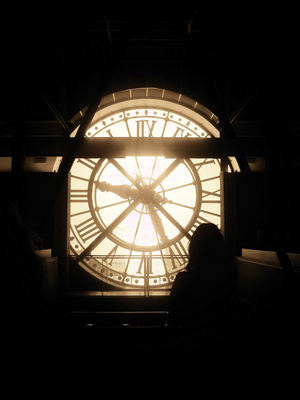All Nonfiction
- Bullying
- Books
- Academic
- Author Interviews
- Celebrity interviews
- College Articles
- College Essays
- Educator of the Year
- Heroes
- Interviews
- Memoir
- Personal Experience
- Sports
- Travel & Culture
All Opinions
- Bullying
- Current Events / Politics
- Discrimination
- Drugs / Alcohol / Smoking
- Entertainment / Celebrities
- Environment
- Love / Relationships
- Movies / Music / TV
- Pop Culture / Trends
- School / College
- Social Issues / Civics
- Spirituality / Religion
- Sports / Hobbies
All Hot Topics
- Bullying
- Community Service
- Environment
- Health
- Letters to the Editor
- Pride & Prejudice
- What Matters
- Back
Summer Guide
- Program Links
- Program Reviews
- Back
College Guide
- College Links
- College Reviews
- College Essays
- College Articles
- Back
Film: Why Does it Captivate us?
Film, an audiovisual experience that most members of the human race are no stranger to. This mesmerizing, immersive medium has been on the rise and has taken a number of evolutionary leaps over the course of its existence, yet the question beckons, why do we enjoy sitting still in a darkened room looking at images and hearing sounds for hours at a stretch so much? Is there not more satisfaction to achieve by going out and exploring some nether region of the urban world?
Evidence seems to point otherwise, as the film industry continues to grow, henceforth we shall see what gives this mode of story-telling the strength that it possesses.
The Origins
As a species we have developed to the point where the need to survive has taken the back bench and is something of the past,henceforth we needed to find some way to fill the void this basic need left. One of the forms of entertainment has always been the recantation of tales, whether gathered around a bonfire and listening attentively to a sole speaker or gripped by words inscribed on parchment the result is always the same regardless of the medium.
Hence with the dawn of photography it was only a matter of time before Les Frères Lumière came in with the moving picture a mere 120 years ago. Today one can safely say that this medium of story-telling dominates all other forms in terms of popularity, and does not appear to be on the decline. So one must then ask, what has made Film so powerful that it has had people run scared out of theatres, or left people in tears of both joy and sadness at the acts that they have just witnessed or ambulances waiting by auditoriums in the case some viewings are too overwhelming?
Removing the Veil, what does Film do to us?
To the young members of our species bright lights that move in sync with sounds is certainly more appealing than learning the meaning of different characters and the multitude of their complex combinations to be able to get the same excitement from a book as one would get from a movie. This might be the case for developing infants but for us, being fully developed Homo sapiens, should we not be able to delve just as intently into a book as a movie?
Jean-Louis Baudry(film theorist) would argue that the reason that a film is far more gripping is that it shows us something that is more real than reality itself, a Hyper-Reality. On a sub-conscious level this has the same effect on us as night dreams do, where we regress into a primitive narcissistic state. This concept derives from Psychoanalytical theories, which looked into the psychological effect that films have on our psyche.
Another film theorist, Christian Metz, made the relation that film has far more in common with day dreams instead of night dreams. Where one can consciously integrate their immediate physical reality with their imagination; this illusion created is something that all viewers can relate to. Despite many people have argued as to whether films are more like night or day dreaming, below are two illustrations where both theories are given credit.
In Alfred Hitchcock's “Psycho,” Marion Crane is seen in her car driving away from Phoenix, Arizona. We see her imagining voices concerning her recent dead(she stole $40,000) by the people that have been effected while she drives off. Although Marion Crane is still in line with the reality around her, the representation of her reality is altered with the introduction of voices of people that are not present, something that beckons a day dream.
In Stanley Kubrick's “The Shining,” we see Jack Torrance plagued by past victims in the Overlook Hotel that he is a caretaker of. These visions take on such a reality for the protagonist he loses the ability to distinguish reality from anything else, and becomes entrapped within the manifestations of his mind. The effect that these have is akin to what we pass through when we dream at night, an environment where possibilities are limitless and behaviour is completely abnormal.
Enough Psycho-Mumbo-Jumbo...
Even though the material presented above is but a small segment of the psychology behind films success in the contemporary world, there is an even simpler explanation, we as a race have become lazier. Most talk nowadays is about some thrilling film that has come out, few people are willing to brave the mental effort it takes to delve into a novel.
In addition directors nowadays are more aware what sells to the people. To clarify, who does not want to watch an 80 story robot go to town on a gigantic alien from another dimension? Or a humongous robotic alien riding a metallic T-Rex fighting against an army of evil robot aliens? With the progress of technology directors are able to depict this better than most peoples imagination, thus giving people's artistry a way to kick back and relax while they are amazed.

Similar Articles
JOIN THE DISCUSSION
This article has 0 comments.
